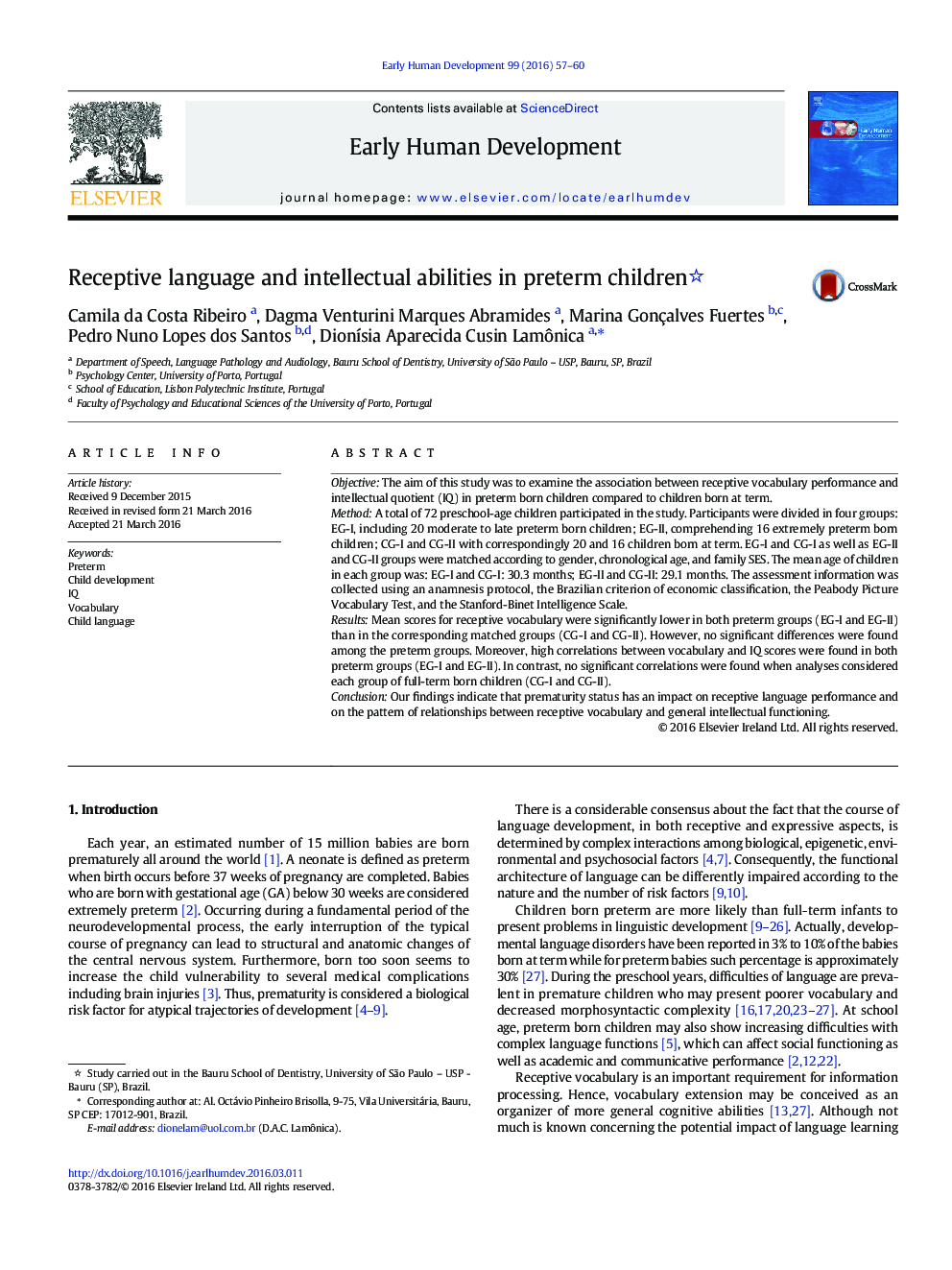| Article ID | Journal | Published Year | Pages | File Type |
|---|---|---|---|---|
| 3916422 | Early Human Development | 2016 | 4 Pages |
•Prematurity may have an impact on receptive vocabulary performance and on general intellectual functioning.•The study aim was to examine associations between receptive vocabulary performance and intellectual abilities in preterm born children.•Significant differences were found between preterm and full-term born infants regarding receptive vocabulary skills.
ObjectiveThe aim of this study was to examine the association between receptive vocabulary performance and intellectual quotient (IQ) in preterm born children compared to children born at term.MethodA total of 72 preschool-age children participated in the study. Participants were divided in four groups: EG-I, including 20 moderate to late preterm born children; EG-II, comprehending 16 extremely preterm born children; CG-I and CG-II with correspondingly 20 and 16 children born at term. EG-I and CG-I as well as EG-II and CG-II groups were matched according to gender, chronological age, and family SES. The mean age of children in each group was: EG-I and CG-I: 30.3 months; EG-II and CG-II: 29.1 months. The assessment information was collected using an anamnesis protocol, the Brazilian criterion of economic classification, the Peabody Picture Vocabulary Test, and the Stanford-Binet Intelligence Scale.ResultsMean scores for receptive vocabulary were significantly lower in both preterm groups (EG-I and EG-II) than in the corresponding matched groups (CG-I and CG-II). However, no significant differences were found among the preterm groups. Moreover, high correlations between vocabulary and IQ scores were found in both preterm groups (EG-I and EG-II). In contrast, no significant correlations were found when analyses considered each group of full-term born children (CG-I and CG-II).ConclusionOur findings indicate that prematurity status has an impact on receptive language performance and on the pattern of relationships between receptive vocabulary and general intellectual functioning.
